The delicate journey from egg to fledgling is a marvel of nature that has intrigued and enchanted observers for ages.
The duration it takes for bird eggs to hatch is a testament to the intricate balance of biology, environment, and maternal care.
Different bird species exhibit a wide range of incubation periods, each tailored to the specific needs of the species and the environment in which they thrive.
The process of incubation involves a blend of precise temperature regulation, protective measures, and the gradual development of the embryo within.
Understanding how long do bird eggs take to hatch provides insight into avian adaptations and the incredible diversity of life strategies in the avian world.
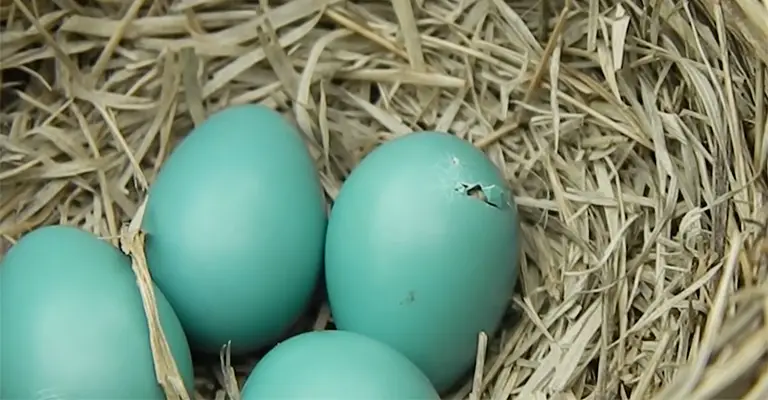
How Long Do Bird Eggs Take To Hatch?
The time it takes for bird eggs to hatch depends on the species of the bird, the size of the eggs, the temperature of the incubation, and other factors.
Generally, smaller eggs hatch faster than larger eggs, and warmer temperatures speed up the development of the embryos.
Here are some examples of how long different bird eggs take to hatch:
Hummingbird Eggs:
Hummingbirds are the smallest birds in the world, and their eggs are also tiny, about the size of a pea.
Hummingbird eggs take about 14 to 23 days to hatch, depending on the species and the environmental conditions.
Sparrow Eggs:
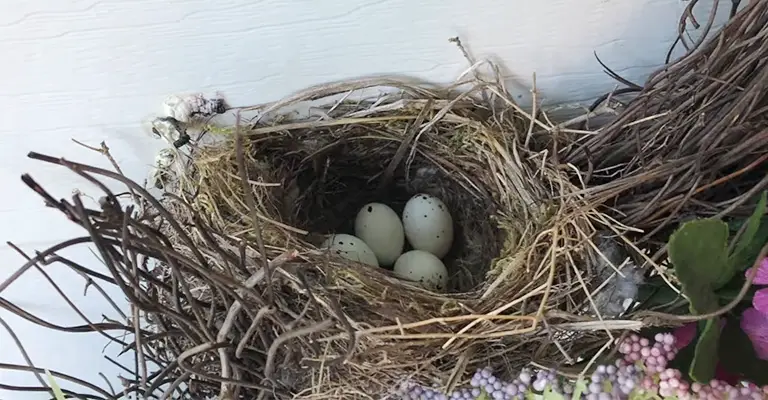
Sparrows are small songbirds that are common in many parts of the world. Their eggs are usually white or pale blue with brown spots, and they measure about 2 cm in length. Sparrow eggs take about 10 to 14 days to hatch.
Robin Eggs:
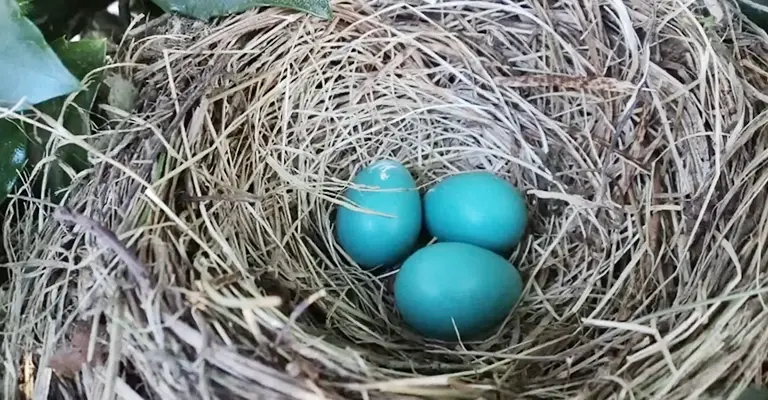
Robins are medium-sized birds that are known for their bright orange breasts and their melodious songs.
Their eggs are usually blue or green, and they measure about 3 cm in length. Robin eggs take about 12 to 14 days to hatch.
Owl Eggs:
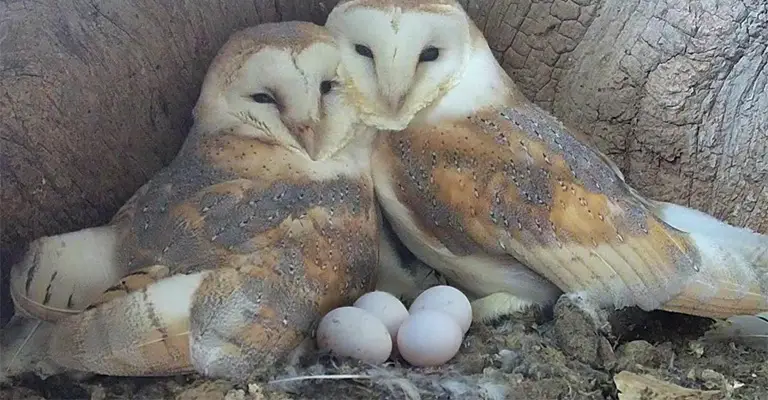
Owls are large nocturnal birds of prey that have excellent vision and hearing. Their eggs are usually white and oval-shaped, and they vary in size depending on the species. Owl eggs take about 28 to 35 days to hatch.
Eagle Eggs:
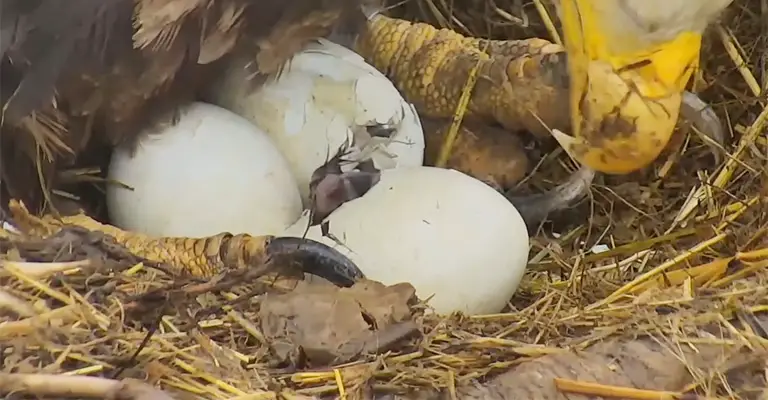
Eagles are powerful raptors that have a wingspan of up to 2.5 meters. Their eggs are usually white or cream-colored, and they measure about 7 cm in length. Eagle eggs take about 35 to 45 days to hatch.
These are just some of the examples of how long bird eggs take to hatch.
What Happens After The Bird Eggs Hatch?
After the bird eggs hatch, the chicks enter a new stage of development that varies depending on the type of bird.
Some chicks are altricial, meaning they are born naked, blind, and helpless, and they depend on their parents for warmth, food, and protection.
Other chicks are precocial, meaning they are born with down feathers, open eyes, and some ability to walk or swim, and they require less parental care.
Here are some examples of what happens after the bird eggs hatch for different types of birds:
Hummingbird Chicks:
Hummingbird chicks are altricial and hatch after about 14 to 23 days of incubation. They are very small and fragile, and they stay in the nest for about three weeks.
Their mother feeds them nectar and insects several times an hour by regurgitating them into their mouths.
They grow rapidly and develop pin feathers on their wings and tails. They start to practice flying by flapping their wings while holding onto the nest edge. They fledge when they are about four weeks old.
Sparrow Chicks:
Sparrow chicks are also altricial and hatch after about 10 to 14 days of incubation. They are covered with sparse down feathers and have closed eyes. They stay in the nest for about two weeks.
Both parents feed them insects and seeds by regurgitating them into their mouths. They grow quickly and develop more feathers on their bodies and wings. They open their eyes after about six days. They fledge when they are about 15 days old.
Robin Chicks:
Robin chicks are altricial as well and hatch after about 12 to 14 days of incubation. They have a thin layer of down feathers and closed eyes. They stay in the nest for about two weeks.
Both parents feed them worms, insects, berries, and fruits by placing them directly into their mouths. They grow fast and develop more feathers on their heads, wings, and tails.
They open their eyes after about five days. They fledge when they are about 13 days old.
Owl Chicks:
Owl chicks are precocial and hatch after about 28 to 35 days of incubation. They have thick down feathers and open eyes. They stay in the nest or cavity for several weeks or months, depending on the species.
Both parents feed them rodents, birds, reptiles, or insects by tearing them into small pieces and placing them into their mouths. They grow slowly and develop flight feathers on their wings and tails.
They start to explore outside the nest when they are about six weeks old. They fledge when they are about two to four months old.
Eagle Chicks:
Eagle chicks are precocial as well and hatch after about 35 to 45 days of incubation. They have white down feathers and open eyes. They stay in the nest for several months.
Both parents feed them fish, mammals, birds, or reptiles by tearing them into small pieces and placing them into their mouths. They grow gradually and develop dark feathers on their bodies and wings.
They start to flap their wings and exercise their muscles when they are about eight weeks old. They fledge when they are about three to four months old.
These are just some examples of what happens after the bird eggs hatch for different types of birds.
What Happens If A Bird’s Egg Doesn’t Hatch?
There are several possible reasons why a bird egg doesn’t hatch, such as:
- The egg was not incubated long enough. Different bird species have different incubation periods, which can vary depending on the temperature and other factors.
For example, hummingbird eggs take about 14 to 23 days to hatch, while eagle eggs take about 35 to 45 days to hatch.
- The egg was not fertile. Sometimes, the egg may not have been fertilized by the male bird, or the embryo may not have developed properly. This could be due to genetic or environmental factors, such as stress, disease, or pollution.
- The egg was damaged or infected. The egg may have been cracked, punctured, or contaminated by bacteria or fungi, which could harm the embryo or prevent it from hatching.
This could be caused by predators, parasites, weather, or human interference.
- The egg was removed or abandoned by the parents. Sometimes, the parents may recognize that the egg is not viable and discard it from the nest.
They may also leave the nest due to disturbance, predation, or lack of resources. This could result in the egg getting too cold or too hot and dying.
If a bird egg doesn’t hatch, the parents may try to lay another clutch of eggs, or they may move on to another nesting site.
Depending on the species and the situation, they may also eat the unhatched egg, bury it in the nest material, or build a new nest over it. Unhatched eggs may also decompose in the nest or get buried by other animals.
FAQ
The incubation period varies among bird species. It can range from about 10 to 80 days. Smaller birds, like sparrows, may hatch in about 10-14 days, while larger birds, like eagles, might take 35-45 days or more.
Environmental conditions, bird size, and the specific needs of the species all impact incubation time. Climate, temperature, and humidity levels play a role in regulating embryo development.
Not necessarily. Even within a single nest, there can be slight variations in hatching times. This can occur due to the order in which the eggs were laid and the incubation process.
Parent birds use their bodies to regulate the temperature of the eggs. They often rotate or adjust the eggs within the nest to ensure even warmth distribution, which is crucial for healthy embryo development.
If eggs fail to hatch within the expected period, they are likely non-viable. The parents may eventually abandon these eggs to focus on nurturing the healthy hatchlings. This can be due to various factors, including infertility or damage to the eggs.
Conclusion
From the patient brooding of a mother bird atop her eggs to the moment when tiny beaks emerge from the shells, the duration of bird egg incubation is a remarkable example of the intricate processes of life.
As we marvel at the variety of incubation times across different bird species, we gain a deeper appreciation for the adaptability of avian life to various ecosystems and environmental conditions.
The hatching of bird eggs serves as a reminder of nature’s patience and resilience, as well as the diverse mechanisms that drive the survival of avian offspring.